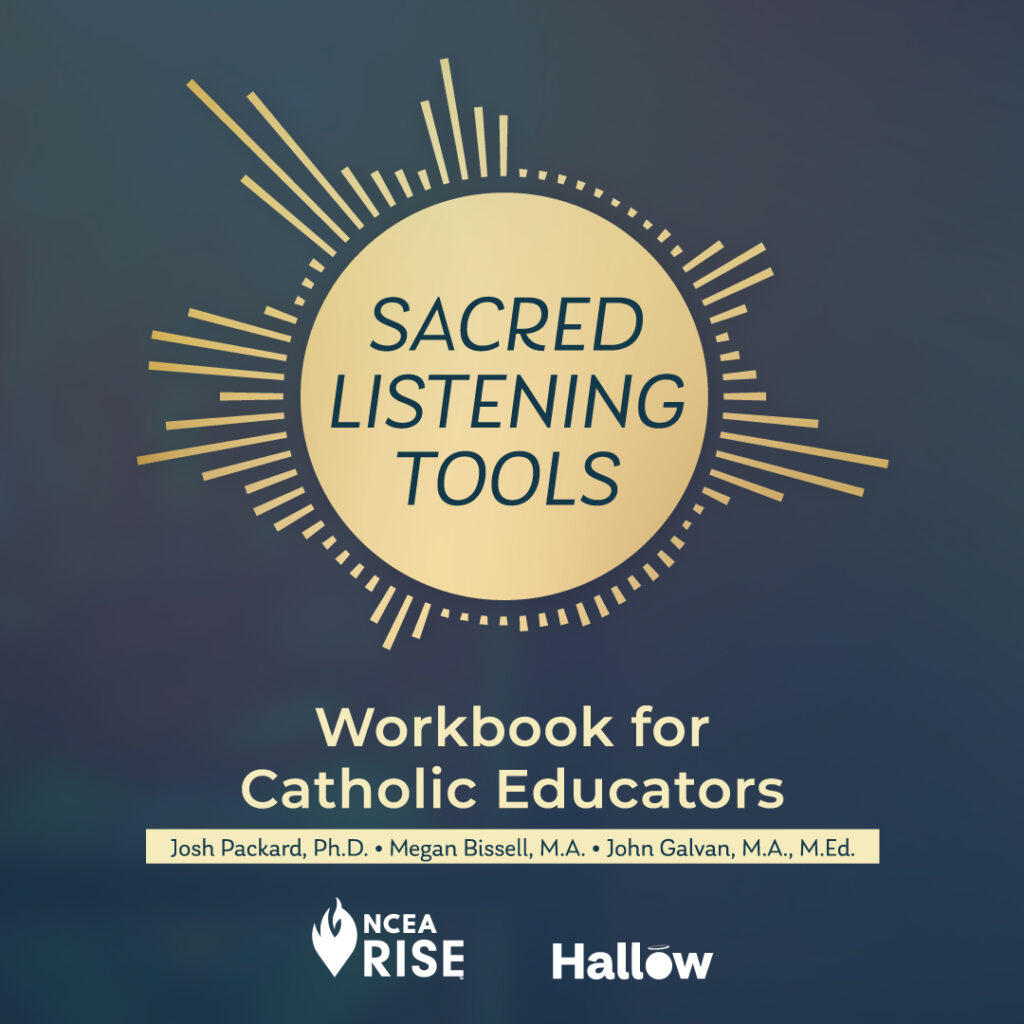Written by Josh Packard, NCEA Executive Vice President of Strategy and Operations, [email protected]
In Catholic schools, everyone from teachers to administrative staff plays a role in the faith development of young people. This isn’t just about formal religious education; it’s about fostering a supportive community that guides students in their spiritual journey.
The key to effective faith formation is listening. Active listening builds trust with students, showing that their thoughts and beliefs are valued. It’s about understanding where they’re coming from and what matters to them. This doesn’t just apply to religious discussions; it should be a part of everyday interactions. By truly hearing what students say, educators can connect on a deeper level and make faith discussions more relevant and engaging.
By focusing on listening, Catholic school educators can help students shape their faith, making it more personal and meaningful. Listening lays the groundwork for trust and meaningful conversation, which is where true faith formation happens.
The transformative effect of sacred listening is mutual. It not only aids those being listened to but also enriches the listener, opening doors to empathy, new insights and a deeper connection with the divine. In essence, sacred listening is a journey of mutual transformation, where listening and being heard leads to shared spiritual growth.

At NCEA 2024 we unveiled Sacred Listening Tools for Catholic Educators, co-sponsored NCEA Rise and Hallow. These tools are designed to help you lead with listening in your classrooms and schools. They have been built to help amplify the great work you already do to support young people.
Implementing sacred listening tools is more than just adopting new methodologies; it’s about embodying a practice of attentive, empathetic engagement in faith formation. These tools serve as navigators in the landscape of contemporary faith, emphasizing that listening with full presence is an act of immense reverence and love. It’s in this exchange of narratives and experiences that trust is reestablished, faith is deepened and communal bonds are strengthened.
As these tools are embraced and shared, they underscore the crucial role we play in faith formation. Stepping forth with attentive ears and tender hearts, ready to listen, discern and love, we not only contribute to others’ spiritual growth but also enrich our journey. Thus, sacred listening reiterates that in the act of listening, we discover the essence of true connection and understanding, forming the bedrock of a spiritually enriched community.
The responsibility for faith formation is shared among all who walk a school’s corridors and it is both a privilege and a calling. For if we can listen with the ear of the heart, as St. Benedict instructs, we might find that it is not just the faith of the young that is formed, but our own as well.
